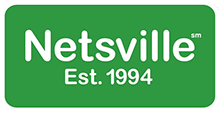The world is changing, and technology is taking the lead. Today, everything is going digital — entertainment, health, real estate, banking and even currencies. This is, however, understandable. In North America alone, 89% of the population is online (subscription required).
With everything turning to digital, it means companies are also jumping online to market their businesses. And to survive the challenges of digital marketing, brands need to keep up with the latest trends. Successfully reaching one’s target audience is no longer just putting out TV and print ads. These days, social media is the new arena of digital marketers, as 3.3 billion people are active social media users.
Notably, according to January 2018 data (subscription required), 24% of the 5,700 global marketers who were surveyed revealed that social media has been an important part of their marketing for the past five years.
To keep up with the ever-changing scene, digital marketing experts need to stay in step with the evolving tech trends. Social media marketing companies like ours work tirelessly to research consumers and what makes them engage with brands. We try to find the best online solutions that will cater to our clients’ end-users’ queries in the easiest and most cost-efficient way possible — be it by developing new technology or adapting to trends.
After much research, here are the leading digital marketing trends that are paving the way in 2018.
1. Interactive Chatbots
Chatbots have been around for some time now. The technology, which combines the use of text, voice and messaging to converse directly with consumers, has been used longer than virtual reality. But this year, it’s taking the spotlight.
According to a 2017 report by Grand View Research, the global chatbot market is estimated to see a compound annual growth rate of 24.3% and is projected to reach $1.25 billion by 2025. In 2017, LivePerson conducted a survey of 5,000 consumers based in six countries and found that 67% of those surveyed are using chatbots for customer support. Furthermore, 38% had positive feedback, and only 11% registered negative reactions to the technology.
Messaging applications such as Facebook Messenger and WhatsApp also make use of messenger bots that are customized to push out products and services. They do this not only by promoting the brands, but also providing the potential user a personalized customer service experience.
The main reason why this technology is so successful is likely that it answers the consumers’ need for information quickly and accurately. Chatbots can also collect data about their users, which feeds into improving interaction with them.
Of course, much like any other technology, there are a few things to note before adopting it. Marketers should consider where to use chatbots. For example, businesses with greater Facebook engagement may want to incorporate a chatbot in their Facebook Messenger; those who have more website traffic may benefit more from website chatbots.
Nonetheless, the tech not only provides a more efficient and responsive way to deal with customers; it is also more cost-effective than hiring customer relations staff.
2. Voice Search
As more and more people are on the go, the use of voice search and voice commands is increasing. Voice assistants are empowering mobile users to access information online and do certain tasks like never before. In the U.S. alone, the use of voice assistants is expected to grow by 128.9% in 2018, compared to 2017. That’s a total of 35.6 million Americans using the service at least once a month.
While the growth is positive, it is a big challenge for businesses as well. Unlike the usual online searches with pages upon pages of results, voice searches will only give the top, most related answer to a query. Businesses want to be that one result that matches a user’s voice query.
What does this mean for digital marketers? It means optimizing content to suit the requirements of voice searches. Publish content that solves or answers consumers’ queries. It’s also important to use natural conversational language, as well as longer phrases or full sentences as keywords. This not only helps the end-user but also makes the content voice-search-friendly.
3. Integrating AI And Blockchain Technologies
Blockchain technology is already disrupting the way the world views finance and financial systems. Its power is not limited to these sectors, however. In recent years, it has already expanded to digital marketing.
Technology has allowed marketers to track where their ads are placed and ensure that real consumers, rather than automated bots, are clicking on their ads. This makes customer engagement data more reliable and makes sure brands’ marketing assets are not being put to waste.
Consumers can also benefit from the transparent nature of blockchain technology, as it gives them more control over how their personal data should be used by advertisers. When consumer trust increases, the likelihood of them sharing personal information also surges. This helps marketers and companies to know them better.
There are a few game-changing services that can help marketers effectively track marketing efforts through blockchain, making sure that every penny is being put where it’s supposed to go. While this would mean additional expenses, the return on investment makes it worth the extra dollars by making sure every ad reaches the target audience.
Read More at Forbes.
Based in Rochester, New York, Netsville is an Internet Property Management company specializing in managing the Digital Marketing, Technical, and Business Solutions for our customers since 1994. For more information, please click here.






